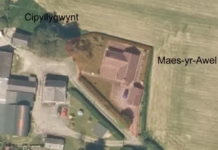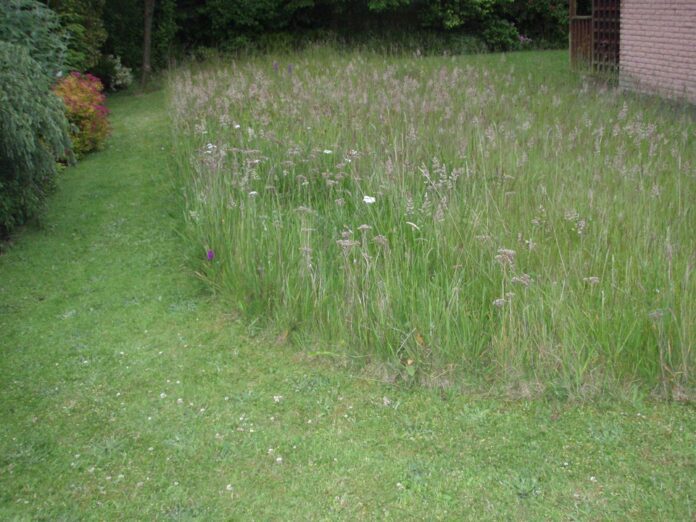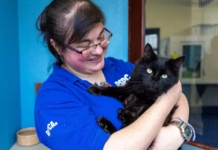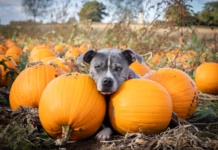- Searches for ‘wildlife places to visit near me’ increased by 250% over the past year
- To help us care for British wildlife, holidaycottages.co.uk has provided tips on how to create a nature-friendly garden
As the warmer weather creeps in, the sound of birdsong, the buzz of bumblebees and the scurry of woodland wildlife return. So, as Google searches for ‘wildlife places to visit near me’ rose by 250% over the past 12 months, it’s clear that coming face to face with beautiful British wildlife is an increasingly popular day out.¹
To help Brits preserve our country’s native wonders, holidaycottages.co.uk shares five expert tips to create a nature-friendly garden. From growing long grass to becoming an architect for birds, there are plenty of options for people to do their bit in caring for the beautiful wildlife that makes Britain unique.
Summer wildlife you can expect to see in your garden
A variety of animal species can inhabit your garden and support the growth of your outdoor space. Some examples of summer wildlife you may find popping into your garden include:
- Birds: house sparrow, song thrush, starling
- Land mammals: hedgehogs, house mice, grey squirrel
- Minibeasts and insects: Bumblebee, nettle weevil, lacewing, red admiral butterfly
- Amphibian: common toad, crested newt, green marsh frogs
1. Let your grass grow and your trees spread
Sometimes the biggest contributions are the smallest. Simply letting your grass grow long will create a habitat for many different plant and insect species. Lawn mowing once a month gives short-grass plants like daisies and white clover a chance to flower in profusion, boosting nectar production tenfold – all while cutting down your chores!
Don’t be tempted to cut down trees in your garden either, as they offer space for wildlife such as birds and squirrels to nest. Their branches can also provide year-round cover for insects!
2. Plant wildlife-friendly flowers and trees
Planting flowers in your garden is not only aesthetically pleasing but also creates a food supply for birds, bees and other creatures. With data from the ACR 20313 suggesting that four in 10 of the country’s 1 million insect species are at risk of dying out, increasing the diversity of plants in your garden can really help these insects to thrive in your area.
Native wildflowers are especially important because they’ve evolved with our insects, which makes them compatible with one another and encourages native biodiversity.
3. Use wildlife-friendly pest control
There are lots of natural ways to control pests in your garden and you should always avoid the use of chemical pesticides and fertilisers which can be harmful to much of our wildlife.
A few examples of natural pest control include using copper tape to protect from slugs, planting sacrificial flowers like nasturtiums to divert attention away from your prize plants, or using biological pest controls like ladybirds to keep the aphids at bay.
4. Provide a home for wildlife and get crafty!
If you’re feeling crafty this summer, building your own bird house or bug hotel is a fun project and is also for wildlife. Both birds and insects are an important part of your garden’s ecosystem, so creating a home and feeding the wildlife allows them to thrive!
You can probably find the majority of the materials you need to build an insect hotel in your cupboards and sheds – items such as bamboo canes, shredded paper, dry leaves and dead wood are perfect and create habitats for a whole range of insects.
5. Create a pond
Wildlife can make use of many types of ponds and water features, whether they become simple drinking sources or thriving habitats for multiple species, complete with their own ecosystems.
Ponds are a fantastic addition to the garden, whether you opt for a large feature with a diverse range of plants to attract many different types of wildlife, or a small container with some rocks just to get you started. Your local garden centre will be able to offer the best advice for your area.
Commenting on the tips Shannon Keary, Digital PR Manager at holidaycottages.co.uk, says: “Britain is home to an astounding number of weird and wonderful wildlife which really make the UK landscape unique. Not only is wildlife conservation hugely important, but visiting wildlife reserves offers a perfect opportunity to get out with friends and family to take inspiration and reconnect with the world around us.
“With over 225 National Nature Reserves in the UK, there are plenty of areas across the nation to get up close and personal with natural fauna. By creating a nature-friendly garden, you can create a flourishing ecosystem to enjoy right on your doorstep.”
To view cottages with beautiful gardens where you can get up close and personal with wildlife, please visit: https://www.holidaycottages.co.uk/blog/cottages-with-beautiful-gardens

| [donate]
| Help keep news FREE for our readersSupporting your local community newspaper/online news outlet is crucial now more than ever. If you believe in independent journalism,then consider making a valuable contribution by making a one-time or monthly donation. We operate in rural areas where providing unbiased news can be challenging. |






















